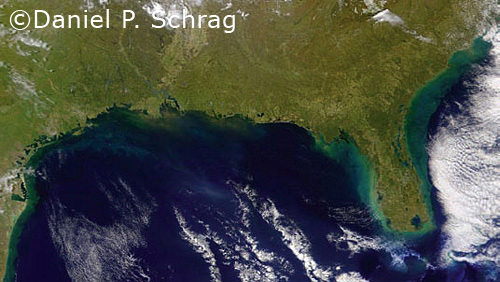2. Introduction
Recently the Institute of Global Environmental and Strategies (IGES) published a report report on Asian perspectives to climate change. The report was the result of an extensive series of stakeholder meetings over the course of 2005. Key academics, NGOs, government officials and business leaders where amongst the interviewees. The focus od the consultations was specifically a post 2012 climate regime.
A fascinating and valuable document in many respects the report was also somewhat lengthy. Here i present my personal views on the salient points and offer some comment on these problems. The report provides a good degree of situational awareness with regards asia and climate change policy. Sweeping statements about what needs to be 'done about' the emerging economies are often made. Here i hope to offer a more instructive guide to the issues and some suggestions of solutions.
3. Regional Perspectives
China ( 3.1 ): (Emissions are 4.5 MtCo2e per capita, population is 1250 Million, GDP (PPP) is $5495 per capita.)
China's economy is growing fast, its consumption patterns are showing similar rapid growth. It is by no means certain that China could attain the levels of consumption that are being supported in the developed world so acute are the environmental stresses. We do however know that such growth is not unprecedented in Asia, take a look are the republic of Korea for a recent example. During 2003 China's power consumption rose by 15%, markedly higher than its 9% economic growth.
“China's active participation in international negotiations and its
political will to implement concrete measures will ultimately determine the
future of china and the world”
This statement being so it is clearly vital that we understand what the key considerations for the Chinese in terms of climate policy. We must tackle this issue from two angles:On what basis does china feel a need to act on climate change? How is this commitment most effectively harnessed?
There are many reasons for China resisting action on climate change: they have lower per capita emissions when compared to developed nations (and energy is currently strongly correlated to wealth); developed nations have historical responsibility, a leadership role is justly required of wealthy nations. If China is to act purely in order to mitigate climate change then it has to be expected that they ask for something in return, quite possibly payment of some kind. Fortunately this is an overly pessimistic look at the situation as China is already feeling the impacts of climate change in the North and East, action on climate change is therefore more than a matter of justice.
“Studies on extreme weather events and trends [in china] show that both
drought frequency and flooding are likely to become more frequent and
intense”

For this reason the need to act on climate change is widely accepted in China, the approach to be taken is where the debate lays. For nations of the south development is far from the mere accumulation of material wealth, it is the increase in wealth required to live with adequate food, health care and basic education. Development for the very poor—such as the 200 million in China living on less than a dollar a day is a matter of life and death—it is essential.
China has only a limited responsibility for action, and this responsibility is arguably contingent on co-commitant action by the west. It is important therefore to look for solutions to climate change in China from a less ideological angle. How can climate change mitigation tie in with sustainable development such as improvements in air quality, how can adaption to climate change be linked to mitigation and how can the North help to promote mitigation of climate change in an efficient manner?
Ultimately it is going to be essential that there is a global cap on emissions of GHG's. To reconcile this reality with the limited responsibility that China has is a great challenge. This will require the USA to be involved. It will also require flexibility in the framework. A emissions limit is unavoidable but support is also non-negotiable. Carbon markets are a good place to start, and supported by china but are insufficient and other approaches are needed. A techCDM has been suggested and technology transfer will definitely be required in any future regime. Agreements on policies and measures are also desirable, the baseline for traditional CDM projects has to be increased, there is to much slack in the system. Adaption funding is one issue that arose consistently across Asia, although it was a particular issue in China and amongst ASEAN members.
Perhaps the single greatest challenge for the worlds climate change policy makers in the world today is how to ensure that the coal fire power stations that china is building now are encouraged to use carbon capture and storage technology. China currently produces 67% of its primary energy needs from coal, due to considerations of security of supply this is expected to remain the case for some time. The numbers are astronomical, if these power station—which will be built—are not at least CCS compatible in the short term then we will not avert catastrophic climate change. The reason that these plants will be built is that China has huge, and cheap domestic coal supplies: coal offers more energy security than gas or oil and is cheaper rout than renewables. This price differential is important, for developing countries 30% may be the difference between being able to pump fresh water and not being able to. One of the vital roles that the climate regime must play is supporting the spread of renewables through training of both technical and managerial staff to run and operate modern electricity systems that include renewables. Coal also produces 70% more CO2 than natural gas power generation and particularly with lignite that is commonly used in china causes toxic and environmentally damaging precipitation. This is one indirect route into climate change mitigation, local air quality can be tackled very effectively with ccs. It is vital that these synergies are exploited and that policy measures to address climate change also address local health issues wherever possible.
India (3.2): (Emissions are 1.3 MtCo2e per capita and the population is 1000 Million, GDP (PPP) is 3100$ per Capita )
As with china India is in the situation of being acutely sensitive to climate change and simultaneously inceasing its contribution to the problem at an alarming rate. Like Coal is currently responsible for 50% of the electricity generation in India and more coal fired power stations are being built at a considerable rate.
"It is likely that energy use will increase by around 5% per year,
resulting in an increase from 120,000 to 400,000 Mw by 2030, coal
from 67,000 to 200,000"
Adaption is a major concern in India, this priority is to be expected when we consider India is ranked 127 out of 188 on the UN's development scale. The country is also strongly divided between the increasing middle classes of the urban areas and the still huge numbers of peasants in the countryside. It is primarily the peasant farmers who will bare the brunt of climate change, particularly through water scarcity, as a result of both decrease summer flows from the Himalayas and from changes in the precipitation regime.
Currently 550 million people in India are without access to electricity; this is therefore a huge opportunity to develop affordable micro-renewables. The challenge is to bring the poor the electricity they need to improve their quality of life without pricing the service so highly that it is unaffordable. Renewables can in fact offer reasonably priced electricity if innovative financing can be found, after the payoff period the people gain from free electricity but this ideal is difficult to implement on a large scale, entrepreneurial skills and micro finance have been successful, can a centralised climate regime really support such projects.
The electricity system for these half billion people is still to be decided upon. The current grid for industrialised India however is very much developed and is amongst the least efficient in the world. It is estimated that due to this very inefficiency that savings of 120MtC could be achieved at 0-15$ per tonne. Studies have recently found that for certain industries such as cement efficiency gains of up to 40% can be made with relatively low levels of investment, we are talking about changing industrial processes here, not about using revolutionary technologies.
The concept of the CDM is popular in India but the major current problems are: the bureaucratic nature of applications and the lack of focus on sustainable development (in particular support for CFC abatement projects). It seems that some alternative to the CDM is required to make sure these projects are undertaken, we cannot have industrialised countries simply offsetting there emissions by encouraging changes through the CDM that are so easily achieved. Surely the baseline has to rise before we have environmental integrity, these low cost advances should be promoted trough agreements on policies and measures related to local air quality or flexible climate agreements such as pledge and review. The advantage of pledge and review is that initiative is encouraged rather than hampered. In a target based system such as Kyoto the negotiators have to consider the non trivial matter of how there economies are likely to perform and therefore what the baseline is for there emissions.
Indonesia ( 3.3 ): (Emissions are 1.3MtCo2e per capita and the population is 217 Million, GDP (PPP) is $3,500 per capita )

Currently the largest source of emissions is forestry. Emissions growth is strong and expected to strengthen, not only because of economic growth but because of the governments policy of promoting coal to incease energy security. Indonesia has significant potential for exploiting renewable energy, particularly geothermal and solar. The costs of these technologies due to patent protection is an issue, as is lack of trained technicians to maintain the projects. Technology transfer and capacity building in the renewable sector are therefore key issues to be addressed in a post 2012 regime. As with most countries where GDP is as low as 690$ US the primary focus is adaption.

Land use change is of huge importance in Indonesia. Only Brazil, Malaysia and Venezuela emit more greenhouse gasses from this source. Clearly there needs to be room in the next climate regime for discouraging deforestation, payment for protecting the forests is supported by many as the only realistic way of supporting those who would use the land to make a living, hoever unsustainably.
Japan ( 3.4 ):(Emissions are X MtCo2e per capita 10.5 and the population is 127 Million, GDP (PPP) is 29,500)
Considering its economic might Japan has been relatively quite on the international scene in relation to climate change. Conflict within the Japanese ministries may explain this weak stance internationally. The primary point of interest gleaned form the Japanese stakeholders is the fact that the 6% target that they have signed up to is widely considered unjust to them.

This surely represents a striking failure of the current regime. The second wealthiest nation in the world, and perhaps the most technologically advanced society feels that a 6% reduction is harsh! Understanding this highlights one manner of thinking prevalent amongst the wealthy; Japan has amongst the lowest emissions per unit GDP of any country in the world. This point must be considered as it does indicate progress by the industries at manufacturing efficiency but the case for using a emissions intensity targets is poor indeed.
Republic of Korea ( 3.5 ): (Currently emissions are 13 MtCo2e per capita and the population is 48 Million , GDP (PPP) is 20, 400 )

The republic of Korea has the 11th largest economy in the world and a per capita emissions level to match. It simultaneously represents the power of globalisation for helping people out of poverty and the terrible potential of this phenoma, the world quakes at the realisation that the rest of Asia may follow this path.
One issue that first came to my mind when considering Korea is this, how are emissions allocated to countries? A general concern that must be addressed, and a fatal flaw in the proposed system of contraction and convergence, a system that perfectly implemented has a lot to offer. Korea has an economy based on manufacture of goods, and the export of these goods. One crucial assumption that i make here is that Korea does not choose the industries that it lives by, these are a product of historical, geopolitical and geographical factors. Bearing this in mind, it is grossly unfair for Korea to be held responsible for emissions by its industries that are producing goods for export. These goods are being consumed in other nations, these other nations are responsible for the energy embodied in there manufacture and transport. Contraction and convergence must be on a human basis, we are responsible for what we consume, not just our proportion of our home countries domestic emissions. In a world of globalisation of what relevance are domestic industry emissions? Surely nations cannot simply outsource there emissions problems! Korea is particularly sensitive to energy prices due to its high proportion of energy intensive industries, it is important to consider the sensitivity of the economies of these countries to energy prices.
Korea is a key example of a nation where due to wealth and significance of emissions a cap is essential but where there is much that must be done by the rst of the world to make this acceptable. Two ideas that receive widespread support in Korea are technology transfer and a pledge and review system for targets, largely due to the rapid and somewhat unpredictable growth currently being experienced.
Given perfect foresight a country may be able to commit to emissions cuts of 20% bellow baseline; based on uncertainty it may only be prudent for some countries, particularly those currently developing to make commitments of 15% to give themselves a buffer. If they then find that the economy grows slowly a 25% cut may be feasible but they will have no motivation to actually achieve this within a Kyoto based system. The weakees of te initial 15% target is in itself an issue, with pledge and review more resources are forthcoming upon reaching a target and it is often the case that a real attempt at a target may lead to further progress—in short pledge and review has the greatest potential for progress if the review is through and the inducements for futher progress strong. The other side of the story however is the situation where for whatever reason a country decides no to act, there are no penalties, the system is therefore sensitive to the target level and the inducement given at the review stage.
Vietnam ( 3.6 ): (Currently emissions are 2 MtCo2e per capita and the population is 82 Million, GDP is 2700 )
Vietnam is at the beginning of what promises to be a rapid process of development, energy demand is expected to triple between 2001 and 2010. With a population of 82M and emissions 0.73MtCo2e Per Capita vietnam is amongst the countries that have higher emissions from land use change than from energy use. 60% of power is currently sourced from hydro electricity but this is changing rapidly, coal is the chosen fuel of the future.
This political choice to pursue coal reflects a general trend across Asia, a trend that is disastrous for climate change policy and that highlight the direct opposition between fuel security and climate change policy when looking at fossil fuels. Renewables and CCS are the only rout that supplies both security and climate mitigation; renewables are currently experianceing exponential growth but CCS is ready to be taken to major trials, the urgency with which CCS is persued will be an important factor in determining whether catastrophic climate change is averted.
Key points to come from Vietnam included the need for the CDM to take on small projects, assisting in clean development at the community level not just offering industrialised countries cheap credits.

Vietnam also pointed out that committing to targets is something they would readily do given the resources and financing to pursue these goals. The interaction between the 3 pillars of justice is a concept that I think Vietnam shows the need for. Ability, responsibility and then equity; this is the pyramid of who is required to act. By means of technology transfer ability to act is increased, only by strong leadership in the developed world can the developing world be claimed to have responsibility to do likewise, equity in the nationalistic sense is very unlikely to help in negotiations as the level of emissions reductions required are so entirely inequitable, many developing countries will have to reduce emissions before they have developed as far as we have before taking measures, we will destroy our planet if Asian leaders decide to catch up with the rest of the world before acting.
4. ConclusionsThere was general agreement that, on the most general level, Asian interest have not thus far been adequately addressed in the climate negotiations. This inadequacy derives in part from the lack of negotiatin capacity that many Asian nations posses.

Asian concerns are more often related to adaption and mitigation linked to sustainable development. Resourcing of adaption, development and mitigation are key challenges; these challenges are financial, knowledge based and technology based. Resourcing is currently insufficient in magnitude and the process of resourcing is to fragmented and complex. Future regimes will have to consider historical responsibility, ability and egalitarian ideals to be effective, these principles are currently marginalised. Amongst the strongest criticisms of the current Kyoto framework is that it lends itself to 'horse trading', competing to take on the minimum targets is not a productive way to run a system. Non annex-1 countries are not encouraged to act, and action they do take is advantageous to them if they can get it accredited as a CDM project, as such projects minamise the cuts required in developed nations they result in many actions by the developing world simply leading to less action in the north. Action must be encouraged in developing countries based on principles and this action must be supported but not to the exclusion of action my the wealthy.
The Adaption funds in there various guises have largely proved an ineffective and inadequate means of assisting with adaption. This is due to both the principles under which the funds are raised and distributed and the practicalities of getting the money into the hands of the organisations that require it.
The flexibility mechanisms are currently focused on large projects in the south that are readily validated , the criteria of sustainable development (SD) are not represented sufficiently. Mitigation should not occur in isolation, policy is less than optimal if synergies are not taken advantage of. HFC23 projects in particular are common in the CDM but have dubious environmental credibility and no role in sustainable development. The CDM if it where to be streamlined would be popular throughout many of the more developed nations in Asia. It would however only be dealing with mitigation in low cost projects. Due to economies of scale many SD projects would not be supported and these community scale projects are going to be vital. The cdm is clearly advantageous to the north and to limited degree to the south it cannot however be thought of as a all encompassing mechanism and other routes to support SD in developing nations are required.
SD can encompass a range of technologies and stems. Some of the technologies are costly and require patent waiver in a comparable manner to anti retro viral drugs. A techCDM would also appear to have wide support and could be highly effective with only limited cost to the developed world. Many of the systems require capacity building and can then have economic and local environmental benefits. Example of changes that can be made without huge capital expenditure include distributed energy systems, improved building methods and industrial techniques,these require knowledge and training to succeed. The widely supported techCDM appears to be a good way to enable the south to act in a more efficient manner than simply working on a project by project basis.
One key issue is 'On what basis would a techCDM work' what are the credits? There will not be co2 quotas to use, but a market based system is clearly preferable to other approaches in terms of actually getting projects underway; carbon markets are thriving while the GEF is working on minimal resources and commitments are partially fulfilled. It is possible that a tech CDM could be funded on the basis of historical responsibility, the bargaining would then have to be over quantification of the benefits.
postscript: Climate Change, InternationalA, FeatureA













 Wired news has a green issue including a fascinating interview with Al Gore.
Wired news has a green issue including a fascinating interview with Al Gore. 

















